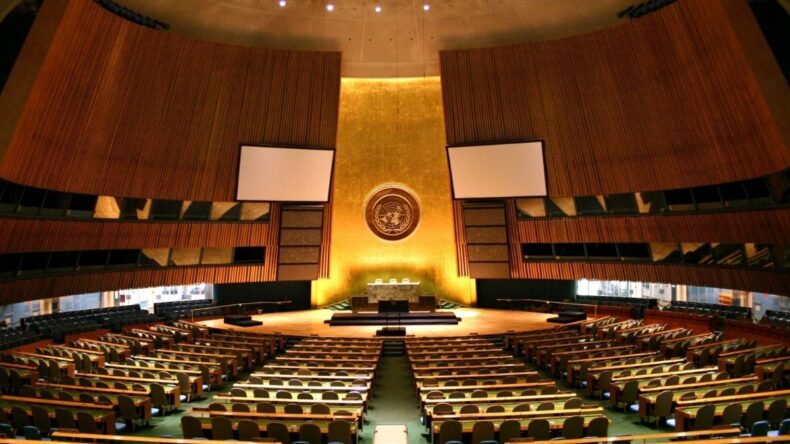The 76th Session of the United Nations General Assembly is in progress from 14th September. And here is everything you need to know about it.
Last year, the United Nations celebrated the 75 years of its existence. As a global intergovernmental organisation, the United Nations (UN) was created to bring peace and harmony.
Global leaders use it as a forum to discuss and debate a wide range of issues of global concern to reach a consensus and take the necessary actions.
However, during the United Nations General Assembly’s 75th session last year, leaders realised and admitted that the goal stated by the United Nations founders at the time of its establishment had not been achieved.
And to achieve those objectives, there was a lot to accomplish and think about.
In addition to growing inequality, poverty, hunger, and armed conflicts, the world is also beset by climate change and pandemics that force people to embark on dangerous journeys in search of safety or refuge.
As a result, to achieve these standards, the world leaders made the following twelve commitments:
1. Leave no one behind
2. Protect our planet
3. Promote peace and prevent conflicts
4. Abide by international law and ensure justice
5. Place women and girls at the centre
6. Build trust
7. Improve digital cooperation
8. Upgrade the UN
9. Ensure sustainable financing
10 Boost partnerships
11. Listen to and work with youth
12. Be prepared
As a follow up to these 12 agendas, the Secretary-General of the United Nations General Assembly also revealed a detailed report titled “Our Common Agenda” on the inauguration of the 76th session of UNGA, thus setting the mark of the current year’s discussions.
Now speaking of this year’s session, the 76th session of the UNGA is going to be a bumpy ride for world leaders as there is a lot to discuss and debate.
Since the Covid-19 pandemic, the world has witnessed some of the most unfortunate events, and now the global citizens are looking upto to the UN to lead their way.
For instance, the three significant situations that created many conflicts, loss of life and property, and displacement of thousands of people lately are the Armenia-Azerbaijan war over the Nagorno-Karabakh, the Israel Palestine conflict the Afghanistan takeover.
The United Nations’ power has been called into question by a number of these issues, and as a result, memes and other forms of online criticism have been shared widely.
A few countries went ahead and took action independently of the UN’s mandate, with the rest of the world just watching on them.
However, the answer to these challenging questions about the UN’s power and authority is pretty simple.
The United Nations is not a superstate with 192 independent member states, and it has its limitations and has to follow a specific mandate.
Decisions made by the UNGA/UNSC or other UN organs are frequently overshadowed by conflicts of interest and proxy wars among a handful of international powers, notably the five UNSC members with veto power, who are more often not on the same page when it comes to the issues of security dimension and strategies.
The UN only has two weapons: punitive economic sanctions and positive intervention through the International Peacekeeping Force.
Again, neither of these weapons can be used unless the all-powerful players reach an agreement.
As a result, certain countries take unilateral actions that may or may not reflect the international community’s wishes as a whole.
For this reason, India, along with several other like-minded countries, has repeatedly called for tough reforms to the United Nations and other global institutional mechanisms to genuinely be the representatives of the twenty-first century by being relevant to the realities.













